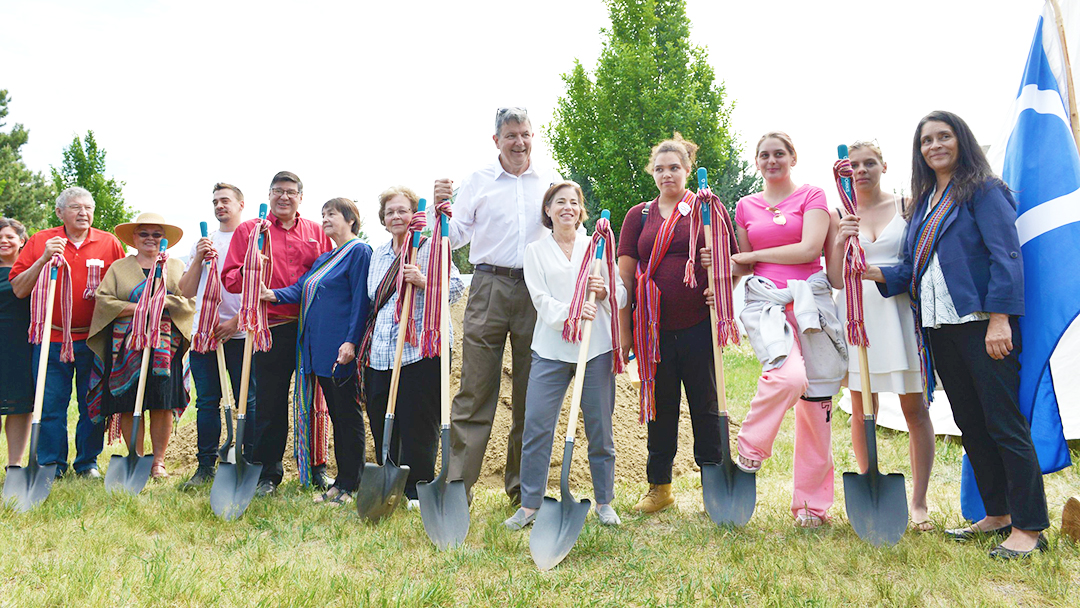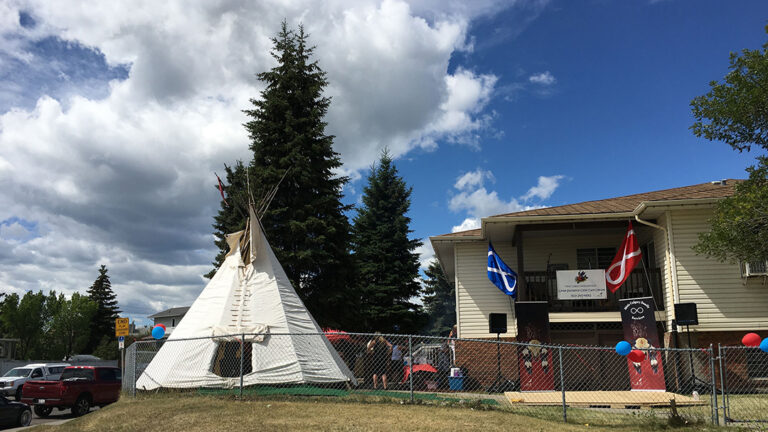In Kamloops, B.C., an innovative approach to improve outcomes for Indigenous youth aging out of foster care is the talk of the town. Kikékyelc [pronounced Kee-kek-yel-c] is an affordable housing complex where youth is teamed with elders to promote natural opportunities for mentorship. The Community Housing Transformation Centre lends financial assistance and support.
An 18th birthday is an important milestone. Not only does it confer responsibility, it is a rite of passage often feted with much fanfare. For youth in foster care, however, the excitement is mired with anxiety and the feeling of having a rug pulled from underfoot. In Canada, the support available to youth aging out of foster care is determined by each province or territory, but many exit the system lacking basic skills necessary to live independently—a highway to homelessness.
For Indigenous youth, the stakes are even higher: the report Coming of Age: Reimagining the Response to Youth Homelessness in Canada is glaringly critical about the over-representation of Indigenous youth in the homeless population. Some call the child welfare system an extension of the residential school legacy, as the outcomes for Indigenous teens aging out are tragically similar: a greater risk of homelessness, mental-health issues, incarceration, premature death, loss of family, language and cultural connections, and loss of a sense of belonging.
A silver lining to a dark cloud, a new Indigenous-led transition model, headed up by Métis agency Lii Michif Otipemisiwak, is being tested out in Kamloops.
Kikékyelc: a place of belonging
“We shouldn’t have a need for a place like Kikékyelc,” laments Colleen Lucier, executive director at Lii Michif Otipemisiwak, in an interview with APTN News. “It exists because the legacy of loss and trauma has just been perpetuated through many of the systems, such as child welfare, and I know it certainly isn’t anyone’s intention working in child welfare to do more harm, but that’s what this system has actually done.”
Kikékyelc, a Secwépemc word meaning a bird covering its little ones in a protective way, is a 31-unit, culturally safe, supported and affordable housing complex that is home to First Nation, Métis and Inuit youth transitioning from the child welfare system to more independent living.
Offering much more than a place to lay one’s head at night, Kikékyelc doesn’t only address the mainstream, colonist definition of homelessness: its purpose is to address homelessness through the lived experience of Indigenous Peoples, which adopts a composite lens of Indigenous worldviews. The Canadian Observatory on Homelessness says that, for Indigenous Peoples, it is “not simply a lack of accommodation or structural habitation, but rather a web of relationships that involves connections to human kinship network.”
Kikékyelc’s Elders-in-Residence program, where five seniors will live among the youth, is one strategy developed to support the ability to transform outcomes for youth while adopting a holistic and Indigenous-led approach.
The youth tenants will learn new skills and knowledge, alongside traditional and cultural teachings, that will increase their capacity and readiness to become involved in their new housing and, eventually, to successfully transit to more independent housing. This bold new approach encompasses this Indigenous view of “home.”
Innovative approach earns Centre support
Judy Smith, the director of Métis Children and Families says, “What makes this project special is the creation of natural connections for our youth and elders. Youth that has grown up in the foster-care system has little to no family connections. The development of Kikékyelc ensures that our traditional ways are being upheld. Kikékyelc has created a network for both our elders and youth and is developing that sense of family that has been lost for many reasons.”
To that end, the Centre has contributed $100,000 from its Community-Based Tenant Initiative Fund (CBTIF) that will go toward paying a fee-for-service for the elders for their time and participation in the program and for needed materials and supplies.
“The project is novel and there is room for knowledge-sharing and testing out new approaches,” says Chrissy Diavatopoulos, a program manager at the Centre. “A ‘for-Indigenous, by-Indigenous’ project, it also aligns with the Centre’s priority area of answering to gaps in service for Indigenous communities.”
An innovative approach to improve outcomes for Indigenous youth while addressing their housing needs, teaming youth with elders, promotes natural opportunities for mentorship and the transfer of knowledge, values, and cultural teachings. And for Colleen Lucier, it is a dream come true.
“I wish to sincerely express our tremendous gratitude for this generous support. This funding is key to our ability to support the involvement of elders in enriching the lives of such a vulnerable population and, ultimately, encourage more secure and stable tenancy,” says Lucier.
Having garnered support from the community and partners across Canada, all eyes are on Kikékyelc.
THE ORGANIZATION
Lii Michif Otipemisiwak Family and Community Services (LMO) is a Métis child and family service agency providing support services to the Métis population in Kamloops, B.C. and surrounding area. These services include early childhood development, family support and cultural supports to Métis children and youth in care of the provincial child welfare system. In 2017, LMO became the second delegated Métis child and family services agency in the province of B.C. As such, the responsibility for all child protection services was transferred from the provincial government to the full responsibility of LMO. In addition to obtaining delegation, 2017 marked another significant milestone for LMO with the approval to begin the development of Kikékyelc: A Place of Belonging.
Photo taken May 23, 2019 in Kamloops, BC. and courtesy of https://news.gov.bc.ca/releases/2019MAH0092-001040 (Homes under construction for Indigenous youth and Elders).



